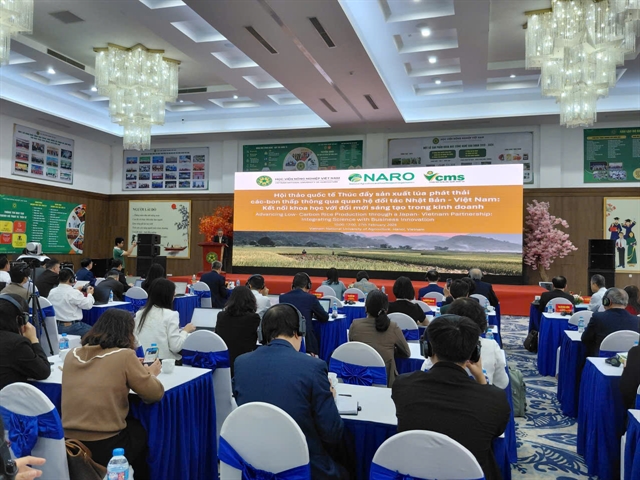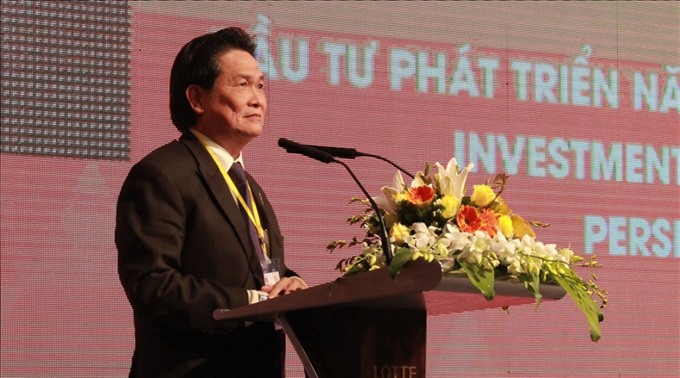 Environment
Environment

Đặng Văn Thành, Chairman of the Management Board of the Thành Thành Công Group, talks to the newspaper Nông Thôn Ngày Nay (Countryside Today) about the country’s great potential to develop biomass energy.
 |
| Đặng Văn Thành. – Photo theleader |
Đặng Văn Thành, Chairman of the Management Board of the Thành Thành Công Group, talks to the newspaper Nông Thôn Ngày Nay (Countryside Today) about the country’s great potential to develop biomass energy.
What do you see as the country’s potential to develop biomass energy?
I should say renewable energy is a current trend of development internationally, given the threat of of climate change. Việt Nam is no exception.
With favourable natural conditions, Việt Nam has great potential for the development of clean energy, such as solar energy, wind power and bio mass.
Việt Nam has more than 3,000 km of coastline running from the North to the South. Việt Nam is next to the equator, so it has a large volume of radiation from the sun – a very important factor for enterprises which are interested in producing solar energy.
These are the two opportunities for the country to develop its renewable energy from the wind and the sun.
Two years ago, Thành Thành Công Group and the International Finance Corporation (IFC) jointly conducted research on Việt Nam’s clean energy potential. We then agreed to enter into cooperation in clean energy production.
Do you think Vietnamese enterprises have the capacity to develop biomass energy?
Regarding biomass energy, I can say that we have big potential for the development of biomass energy, particularly sugar cane refuse from more than 40 sugar mills nation-wide. In addition, biomass energy is a good source of electricity backup for our hydro-power.
In Việt Nam, when the rainy season comes to an end, the winter season is approaching. And it is time for the biomass energy to connect to the national grid to add power for electricity consumers.
However, regarding the cost of biomass electricity, I would like to call on the Ministry of Industry and Trade to consider a universal price for a unit of electricity nation-wide, regardless of whether it is produced from coal, hydro power, wind energy or biomass.
If my proposal is accepted, it will encourage the development of biomass energy or other types of energy.
Will you please share with us your experiences in seeking funds for clean energy development?
At present, many banks and financial institutions have expressed their interest in the development of renewable energy.
In my project, IFC is our strategic shareholder while the Singapore Armstrong Clean Energy Fund is also our stakeholder.
In Việt Nam clean energy development is still in a new area. So in my point of view, we should consider carefully which agency would become our stakeholder in both capital investment and technical support. IFC and Armstrong are committed to accompanying us toward the goal of achieving 1,000 MegaWatt (MW) of electricity by 2020.
Does the IFC require any special conditions from the Thành Thành Công Corporation?
The most important principle that the IFC requires us to observe is that we protect the environment. This is a guiding principle in our co-operation.
Will you please share with us some of the challenges that your corporation has faced in producing renewable energy in Việt Nam?
The weakest point is that at present the infrastructure for Việt Nam’s electric transmission line is still weak.
The current transmission line system is still concentrated, not yet distributed according to geographical conditions. This is a stumbling bloc for wind energy or solar energy when they want to join the national grids.
In addition, the construction of a hydro power plant or thermo plant with 50-100 MW should not take several years as it does at present. It should take around 10 months as it does in Thailand now.
Do you have any comments on the current electricity price in Việt Nam?
The Government has assigned Electricity Việt Nam as the sole agency to buy all electricity generated from the solar energy projects with the price unit of VNĐ 2.086/kWh (9,35 US cents). This price does not include the value added tax. If it is possible I would like the Government to raise the price unit a bit higher so that more companies will be interested in producing clean energy in the future.
Don’t you think that quite a few Vietnamese enterprises are also interested in producing renewable energy?
In the context of climate change and negative consequences of energy produced from fossils, I think it is high time for Vietnamese enterprises to further complete their plans or change their strategies towards the development of clean energy or renewable energy.– VNS